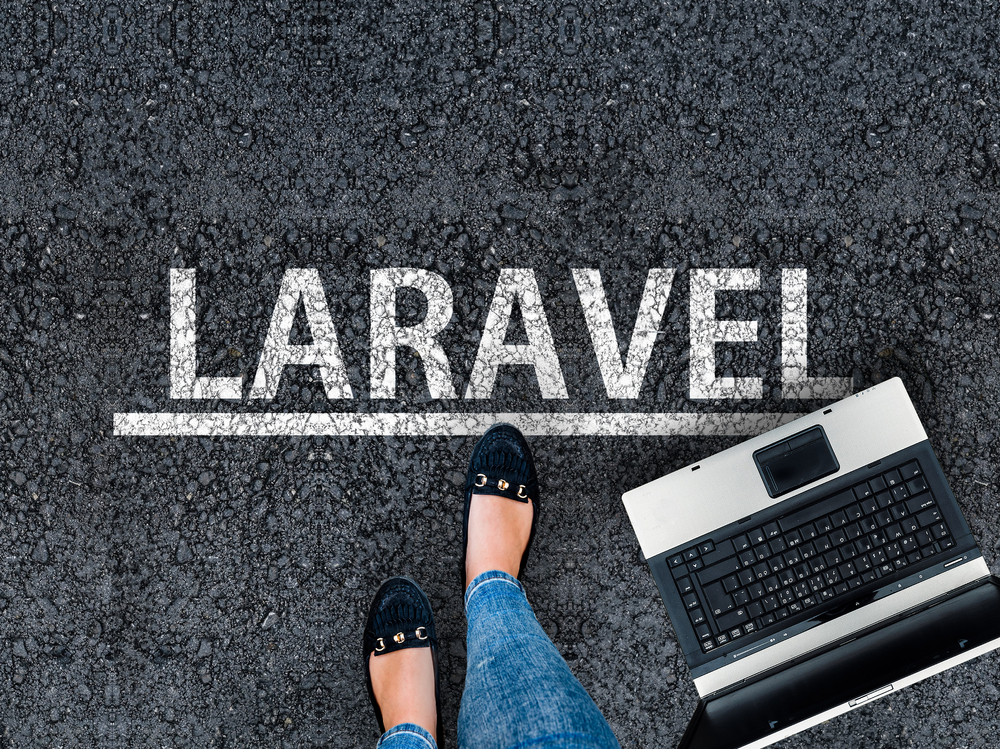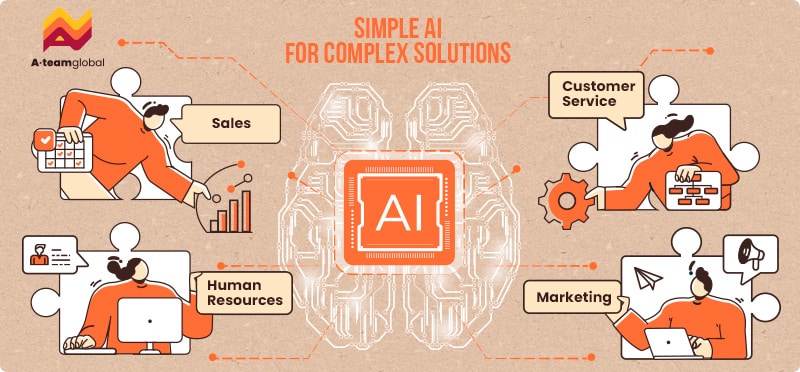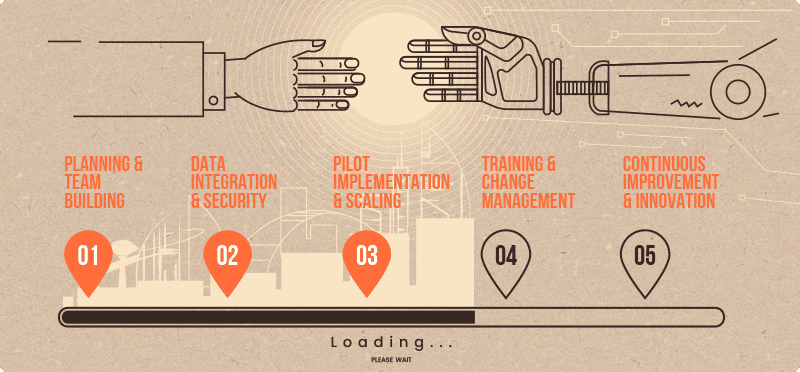The article provides a concise set of interview questions and answers focused on Laravel, a popular PHP web application framework. It aims to help readers prepare for Laravel-related interviews by covering key topics and concepts within the framework.

Top Laravel Interview Questions and Expert Answers
Laravel, a popular PHP web application framework, has gained immense popularity among developers for its elegant syntax, robust features, and efficient development workflow. Currently, as of 2023, around 44,323 companies use Lavarel. As businesses continue to seek innovative and dynamic web solutions, the demand for skilled Laravel developers has surged. In this article we’ve prepared most common
Laravel job interview questions with answers.
Introduction
Whether you're a seasoned Laravel developer or an aspiring one, preparing for a Laravel interview is crucial to landing your dream job or securing a promising project.
In this article, we have compiled a comprehensive list of Laravel interview questions and provided detailed answers to help you navigate the intricacies of this versatile framework. Whether you're facing an interview for a junior developer position or a senior role, this resource will prove invaluable in sharpening your knowledge of Laravel's core concepts, best practices, and advanced techniques.
We will cover a wide range of topics, including Laravel's architecture, Eloquent ORM, routing, middleware, authentication, and deployment strategies. Each question is carefully crafted to test your understanding of Laravel's inner workings and to assess your ability to solve real-world web development challenges using this framework. By the end of this article, you'll not only be well-prepared for your Laravel interview but also equipped with the knowledge and confidence to excel in your Laravel development endeavors. According to Glassdoor, the average salary of a PHP Laravel developer in the USA is $99 315 per year and the demand for these specialists is only growing, so this is definitely the job to consider.
And now let's dive into the world of Laravel interview questions and answers, where we will unravel the mysteries of this powerful PHP framework and empower you to stand out in the competitive field of web development.
If you are looking for experienced Lavarel developers who can meet all your needs, A-Team Global is happy to help you. With 15% of Lavarel projects completed in 5 years, we have a high customer satisfaction rate and are always delighted to assist you with your project development needs.

Questions and Answers for Junior developers
Here are some common interview questions for junior Laravel developers along with sample answers:
What is Laravel, and why is it popular?
Answer: Laravel is a popular PHP web application framework known for its elegant syntax and developer-friendly features. It simplifies common web development tasks like routing, authentication, and database interactions. Its popularity stems from its robust ecosystem, comprehensive documentation, and the ease it provides in building scalable and maintainable web applications.
Explain the MVC architecture and how Laravel implements it.
Answer: MVC stands for Model-View-Controller. In Laravel, the Model represents the data and business logic, the View handles the presentation layer, and the Controller manages the interaction between the Model and View. Laravel makes it easy to implement MVC through its built-in tools like Eloquent ORM for Models and Blade templating for Views.
Explain the importance of Middleware in Laravel.
Answer: Middleware in Laravel is a series of HTTP request filters that can modify the request or response before it reaches the application's core logic. Middleware is crucial for tasks like authentication, logging, and input validation. For instance, you can use the auth middleware to ensure that only authenticated users can access certain routes.
What is Laravel Artisan, and what are some common commands you use during development?
Answer: Laravel Artisan is a command-line tool that comes with Laravel, offering various commands to simplify development tasks. Some common Artisan commands include:
- php artisan make:model ModelName: Creates a new Eloquent model.
- php artisan make:controller ControllerName: Generates a new controller.
- php artisan migrate: Runs pending database migrations.
- php artisan route:list: Lists all registered routes in the application.
What are Laravel migrations, and why are they important?
Answer: Migrations are a way to version control and manage database schema changes. They allow you to define and modify database tables and columns using code rather than manual SQL scripts. This helps keep the database structure consistent across development, testing, and production environments.
Explain the concept of dependency injection in Laravel.
Answer: Dependency injection is a design pattern used in Laravel to inject dependencies (e.g., objects or services) into a class instead of hard-coding them. Laravel's service container (IoC container) automatically resolves dependencies and injects them into classes. This promotes code reusability, testability, and maintainability.
What is Laravel Homestead, and how does it simplify development?
Answer: Laravel Homestead is a pre-packaged Vagrant box that provides a development environment specifically configured for Laravel. It includes PHP, Composer, Nginx, MySQL, and other tools needed for Laravel development. Homestead simplifies the setup of a consistent development environment across different machines, making collaboration easier.
Remember that interview questions may vary depending on the specific job and company, so it's essential to be prepared for a range of topics and scenarios when interviewing for a junior Laravel developer position.

Questions and Answers for Middle developers
Here are some Laravel interview questions for middle developers along with sample answers:
Explain the difference between Laravel and Lumen.
Answer: Laravel and Lumen are both PHP frameworks by Laravel. The main difference is that Laravel is a full-featured framework suitable for building large-scale web applications, while Lumen is a micro-framework designed for building smaller, faster, and lightweight applications like APIs and microservices.
What is Composer, and how is it used in Laravel?
Answer: Composer is a dependency management tool for PHP. In Laravel, Composer is used to manage and install PHP packages and dependencies. It simplifies the process of adding external libraries and packages to your Laravel project by updating the composer.json file and installing packages with a single command (composer install).
What is Eloquent ORM, and how does it work in Laravel?
Answer: Eloquent is Laravel's implementation of the Active Record pattern and is used for database interaction. It allows developers to work with databases using an object-oriented syntax rather than writing raw SQL queries. Eloquent models represent database tables, and you can perform database operations like querying, inserting, updating, and deleting records using Eloquent methods.
Explain the purpose of Laravel Blade templating engine.
Answer: Blade is Laravel's templating engine that simplifies the process of creating HTML templates. It provides features like template inheritance, loops, conditionals, and includes. Blade templates are compiled into plain PHP code, which makes them efficient and allows for the creation of reusable, clean, and maintainable view files.
How does Laravel handle authentication?
Answer: Laravel provides built-in authentication mechanisms through the php artisan make:auth command. It generates the necessary routes, controllers, and views for user registration, login, and password reset. Additionally, Laravel supports various authentication guards and providers, making it flexible to use different authentication methods, such as email/password, OAuth, and more.
Explain the concept of middleware groups in Laravel.
Answer: Middleware groups allow you to group multiple middleware into a single group and apply them to routes or route groups. This is useful for applying common sets of middleware to specific parts of your application. You can define middleware groups in the app/Http/Kernel.php file and then apply them to routes using the middleware method.
Questions and answers for Senior Lavarel developers
Here are some Laravel interview questions for over 5 years experienced senior Laravel developers along with sample answers:
What are Laravel service providers, and why are they useful?
Answer: Service providers are responsible for bootstrapping various components of Laravel, like registering services, configuring them, and binding them to the service container. They are essential for extending Laravel's functionality and keeping code organized.
What are Laravel Mix and how are they used in Laravel projects?
Answer: Laravel Mix is a wrapper for Webpack, a popular JavaScript module bundler. It simplifies asset compilation and management in Laravel projects. Developers can define asset compilation tasks (e.g., compiling SASS to CSS or bundling JavaScript) in the webpack.mix.js configuration file. Laravel Mix provides a fluent API for defining these tasks, making it easier to work with front-end assets in Laravel projects.
Explain the differences between Eloquent's hasMany, hasManyThrough, and hasManyDeep relationships in Laravel. When would you use each of them?
Answer:
- hasMany: It establishes a one-to-many relationship between two models, where one model has multiple instances of another model. It's used for simple one-level relationships.
- hasManyThrough: This relationship is used for scenarios where you need to access related data through an intermediate model. It's useful for complex many-to-many relationships with an additional pivot table.
- hasManyDeep: It allows you to define relationships that span multiple levels, typically used in scenarios where you have deeply nested relationships. You'd use this when you need to access data through several intermediate models.
How do you handle error and exception handling in Laravel?
Answer: Laravel provides robust error and exception handling through configuration files like app/Exceptions/Handler.php. You can customize error views, log errors, and handle exceptions as needed.
Explain the differences between Laravel 7 and Laravel 8.
Answer: Laravel versions evolve with new features and improvements. For example, Laravel 8 introduced model factories, dynamic Blade components, and job batching. The exact differences would depend on the specific features and updates between the two versions at the time of the interview.
Remember that senior Laravel developers should not only know the answers to these questions but should also be able to demonstrate their knowledge through practical examples and problem-solving scenarios.
Can you explain the differences between Laravel's HTTP middleware and route middleware? How do you prioritize and apply middleware effectively in a complex application?
Answer:
- HTTP Middleware: These are global filters that intercept HTTP requests entering your application. They are applied to every request.
- Route Middleware: These are specific to individual routes or route groups. You can apply them selectively to certain routes, allowing for more fine-grained control.
To prioritize and apply middleware effectively, you can use the $middleware and $middlewareGroups arrays in the Kernel.php file. Define middleware in the appropriate group and order them based on your application's needs.
Discuss the differences between RESTful API authentication using Laravel Passport and OAuth 2.0. When and why would you choose one over the other for securing APIs?
Answer:
- Laravel Passport: Passport is a Laravel package for API authentication, and it uses OAuth 2.0 under the hood. It's a great choice when you need to secure your own APIs quickly and efficiently.
- OAuth 2.0: OAuth 2.0 is a widely adopted open standard for API authentication. It's suitable when you want to provide access to third-party applications or integrate with external services.
The choice depends on your project's specific requirements. If you need to provide API access to external clients, OAuth 2.0 is the standard choice. For in-house or simpler projects, Passport may be more convenient.
Check out our article on Lavarel vs .NET
Tips for interviewing Laravel developer
Interviewing a Laravel developer can be a crucial task to ensure you're hiring the right person for your project. Laravel is a popular PHP framework, and finding a skilled developer can greatly impact the success of your web application. Here are some tips and questions to consider when interviewing a Laravel developer:
Review Their Portfolio
Before the interview, review the candidate's portfolio and previous projects. Pay attention to the complexity of the projects and whether they align with your needs.
Technical Questions
Start with fundamental Laravel questions to gauge their knowledge of the framework.
- What is Laravel, and why is it popular for web development?
- What are Eloquent ORM and its benefits?
- Explain the MVC architecture in Laravel.
Laravel Specifics
Dive deeper into Laravel-specific topics to assess their expertise.
- How do you handle authentication in Laravel?
- Explain middleware and provide some examples of when to use them.
- What is the purpose of Laravel Artisan commands?
Version Control and Deployment
Ask about their version control and deployment processes.
- Which version control systems have they used, and what's their deployment workflow?
- Have they worked with tools like Git, Docker, or Continuous Integration (CI) pipelines?
Problem-Solving Skills
Present a real-world problem or code challenge and ask them to solve it during the interview. This can reveal their problem-solving abilities.
Soft Skills
Don't forget to assess soft skills.
- How do they communicate and collaborate within a team?
- Can they explain complex technical concepts in simple terms?
Questions About Their Experience
Ask about their previous experiences with Laravel projects. What challenges did they face, and how did they overcome them?
Ask for Code Samples
Request code samples or ask them to write a small code snippet during the interview to evaluate their coding style and practices.
Open-Ended Questions
Ask open-ended questions to understand their thought process and problem-solving approach.
References
Consider asking for references from previous employers or clients to validate their work history and reliability.
Remember to adapt these questions and topics to your specific project requirements and the seniority level you're hiring for. The key is to ensure that the candidate possesses both the technical skills and the ability to fit into your team and project dynamics.
In this article, you can also compare Lavarel vs Django vs Node.

Tips for developers to prepare for the interview
Preparing for a developer interview requires a combination of technical knowledge, problem-solving skills, and effective communication. Here are some tips to help you prepare:
Understand the Job Requirements
Review the job description carefully to understand the skills and qualifications required for the role. Research the company's tech stack and projects to tailor your preparation accordingly.
Review Data Structures and Algorithms
Brush up on fundamental data structures (arrays, linked lists, trees, graphs, stacks, queues, etc.) and algorithms (sorting, searching, dynamic programming, etc.). Solve coding challenges on platforms like LeetCode, HackerRank, or Codeforces to practice problem-solving.
System Design
For more senior roles, be prepared for system design questions. Practice designing scalable and efficient systems.Understand principles like scalability, load balancing, and database design.
Mock Interviews
Conduct mock interviews with a friend or use online platforms to simulate real interview conditions. Receive feedback on your performance and improve upon weak areas.
Projects and Portfolio
Highlight your relevant projects, open-source contributions, or personal projects on your resume. Be ready to discuss your role, challenges, and outcomes in these projects.
Soft Skills
Improve your communication skills. Practice explaining your thought process clearly. Demonstrate your ability to work in a team and collaborate effectively.
Current Trends and Technologies
Stay updated on the latest trends and technologies in the field, as interviewers might ask about them.Follow industry blogs, forums, and podcasts.
Prepare for Coding Tests
Some interviews include coding tests on a shared online platform. Familiarize yourself with the tools and environment. Test your coding setup and ensure a stable internet connection.
Remember that interviewers not only assess your technical skills but also your problem-solving ability, attitude, and cultural fit. Continuous practice and preparation will help you perform well in developer interviews.
Conclusion
In conclusion, this article has provided a comprehensive overview of Laravel interview questions and answers, equipping both job seekers and interviewers with valuable insights into this popular PHP framework. We've explored a range of topics, from Laravel's core concepts and features to its database management capabilities and security measures. By preparing for these questions and understanding the underlying concepts, candidates can confidently showcase their Laravel expertise during interviews. Moreover, hiring managers can use these questions as a benchmark to assess the skills and knowledge of potential candidates effectively. In the competitive world of web development, mastering Laravel and acing interviews is a crucial step toward a successful career.
you may also want to read

Leveraging Local LLMs and Secure Environments to Protect Sensitive Information
In the rapidly evolving digital landscape, businesses are increasingly adopting Generative AI (GenAI) technologies to stay competitive and innovate. Large...

Boost Efficiency Today: Easy AI Integration for Immediate Results
In the past, the idea of integrating artificial intelligence into your business might have felt like venturing into uncharted territory—complex,...

A Roadmap to Gen AI Adoption for Small and Medium Businesses
Unlock new opportunities by integrating Generative AI into your business operations. In today’s fast-paced digital landscape, small and medium businesses...
